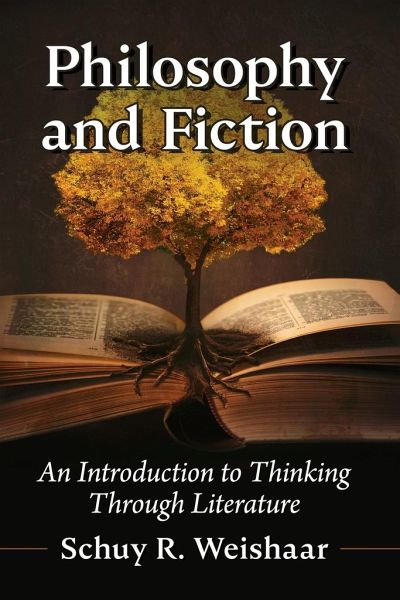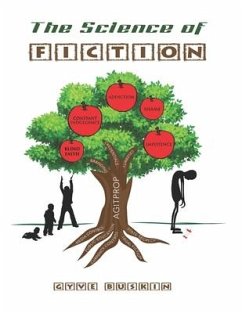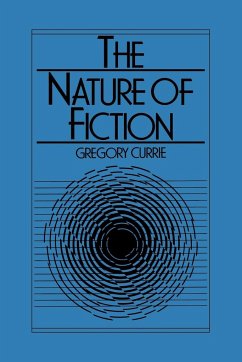
Philosophy and Fiction
An Introduction to Thinking Through Literature
Versandkostenfrei!
Versandfertig in 1-2 Wochen
45,99 €
inkl. MwSt.

PAYBACK Punkte
23 °P sammeln!
Fiction lies in order to tell the truth and seeks reality through shadows. Philosophy attempts to dispel false realities; it pursues clear understanding of things as they are. While the relation of philosophy and fiction is, perhaps, paradoxical, they implicate one another's picture of human experience. This book uses fiction to help readers process philosophical themes, and the philosophical reflection, in turn, helps clarify the fiction. The study moves through roughly a hundred years of modern fiction, from Washington Irving's ""The Devil and Tom Walker"" (1824) through James M. Cain's Doub...
Fiction lies in order to tell the truth and seeks reality through shadows. Philosophy attempts to dispel false realities; it pursues clear understanding of things as they are. While the relation of philosophy and fiction is, perhaps, paradoxical, they implicate one another's picture of human experience. This book uses fiction to help readers process philosophical themes, and the philosophical reflection, in turn, helps clarify the fiction. The study moves through roughly a hundred years of modern fiction, from Washington Irving's ""The Devil and Tom Walker"" (1824) through James M. Cain's Double Indemnity (1936). Several ""classic"" works of literary fiction are examined, a few largely forgotten stories and several popular novels. Reading fiction through the lens of philosophy helps readers perceive the complexity and richness of fiction, reinvigorating the pursuit of wisdom that lies just beneath the surface of the words on the page.














